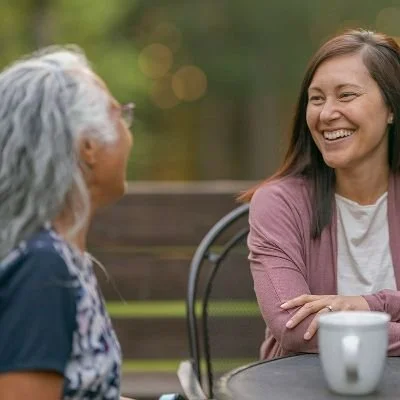How To Better Communicate
For caregivers, communication is critical to your loved one’s health and wellbeing.
Dear Caregivers,
Spring is going into full swing, complete with all the sights and sounds of rejuvenation. For many people, that means budding trees, greening fields, and an increase in the sounds of bird song all around.
The singing of the birds is a powerful reminder to me that nearly all of life on earth, both plants and animals, have ways to communicate with each other. Sometimes it is through the release of chemicals, other times through touch, and other times through vocalizations. But all of it intended to help the organisms interact with each other to produce results.
For caregivers, communication is critical to your loved one’s health and wellbeing. Of course, it is important that you make sure you have a clear means of passing along information, comfort, and encouragement to your loved one. But you also need to serve as the centerpiece of your loved one’s caregiving universe, gathering and coordinating information from doctors and other healthcare experts, service providers, and others in your loved one’s caregiving “village”. And finally, keep in mind that you and your loved one’s practice of "communication" will evolve over the course of the illness: Sometimes a smile, a hug, or holding your loved one's hand speaks volumes, and may be all that they need.
Remember that through all this, your personal navigator is there to aid in every step of the way, helping you to collect, organize, and act on everything you hear, and give you advice on the best ways possible to interact with your loved one.
It’s mentally challenging work! So, remember, too, to take "take your oxygen first": Schedule a break occasionally, and go outside and spend a few minutes just listening to the birds singing.
Here are some tips on how to achieve better communication:
Communicating Better With Your Loved One:
Communicating with a loved one with Alzheimer's can be challenging, as the illness robs your loved one of their abilities to remember and process information during a conversation. But there are ways you can make it easier for both of you to communicate effectively. Here are some guidelines.
Communicating with Your Caregiving Village:
As the primary advocate for your loved one, you need to feel confident and comfortable adding your voice to the conversations about their care. Here’s some advice on how to communicate with your healthcare providers.
Ten Tips for Better Communication With a Person With Dementia:
With Alzheimer’s disease, your loved one’s ability to understand, process, and communicate information will change. Here are some strategies and skills you can use to reduce communication challenges that could frustrate both of you.
Remember, if you can’t find the information you need on our website, you can always “Ask NAN” by clicking on this link.
Best,
Rosemary D Laird, MD, MHSA
Founder and Chief Medical Officer
“Effective teamwork begins and ends with communication.”
— Mike Krzyzewski




